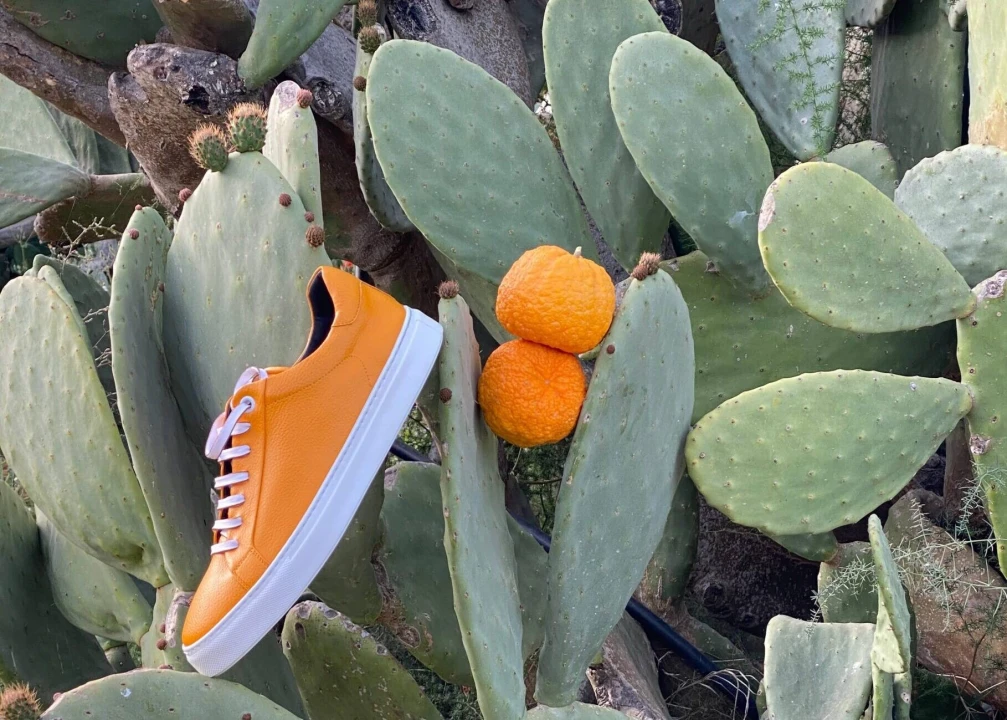A patented coated fabric made from the industrial by-products of oranges and prickly pears destined for the fashion, furniture and automotive sectors is born in Sicily, Italy.
The project developed by Ohoskin, the innovative startup born in 2019, aims to offer luxury fashion, furniture and automotive brands a sustainable, vegan alternative to animal leather. "Even today much of the leather in the world, not in Italy, is chrome tanned, with devastating effects on ecosystems," begins Adriana Santanocito, CEO of the startup. "That, combined with growing consumer awareness of animal welfare, has led to an exponential search for alternative materials to leather."
The one produced by Ohoskin is a non-fossil, plant-based alternative material to leather, thanks to a new recipe with recycled plastics and from organic sources that reduce the carbon footprint and extend the product's life cycle. "We started with a bold choice," he adds, "linked to a new concept of sustainable luxury, and that is to prioritize durability and recyclability instead of biodegradability, because durability means trapping carbon for as long as possible and, at the same time, avoiding the release of microplastics into the environment. Our product is designed from the beginning to be strong and durable and is subjected to the most demanding physical-mechanical tests, does not contain phthalates, and complies with Iso, Reach (Eu) and Prop 65 (US) regulations."
The supply chain that gives birth to Ohoskin's fabric is validated by blockchain: from the very beginning, in fact, the startup made the decision to communicate without hiding anything about its product. "We reuse tons of byproduct of oranges and prickly pears that the food industry produces every year in Sicily, to transform them into a high-quality bio-based material in a virtuous process of circular economy," Adriana explains. "In this way, what is a disposal cost generates new economic resources and does not produce a burden on the environment. So it was natural to certify our process and make every step in the supply chain transparent."




